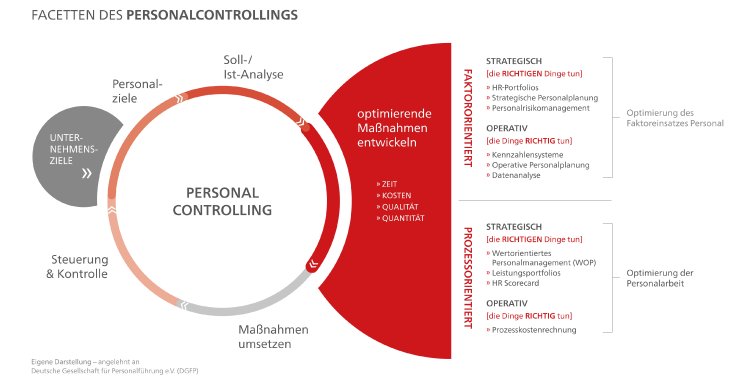The significance of “Why?” in HR controlling
Why are certain key figures used? Why are certain trends observed? Why do employees react in a certain way? Which data can be analysed ad hoc and which need to be interpreted in more detail by the HR team?
These questions may seem simple, but their importance for HR controlling is immense. They serve as a guideline that makes it possible not only to collect data, but also to really understand it and utilise it sensibly. After all, the key question is: what data does HR Controlling need to collect and analyse in order to promote the company's goals through the planning and management of HR processes?
The challenge of HR controlling
All too often, however, personnel controlling is still faced with the challenge of collecting a large amount of data on personnel at short notice and passing it on in corresponding reports. These tasks are often repetitive, tie up manpower and leave little room for in-depth analyses. The temptation is to focus on the quantity of data collected rather than its quality and relevance. This can lead to an overabundance of reports and metrics that offer little insight and confuse rather than inform decision-makers. Correlations and trends are not transparent and metrics that serve no other purpose dominate.
What are the benefits of focussing on the "why?"
The above examples make it clear why the foundation of HR controlling and the structure of HR reporting should be based on the question "Why?". Increased relevance of the data collected is the benefit of this more detailed approach.
Alignment with corporate goals
The "Why?" in HR controlling allows key figures and reports to be closely aligned with HR objectives and therefore with overarching corporate goals. By regularly asking why certain information is relevant, HR controllers can ensure that their reports contribute to supporting the company's overall strategy and answering relevant questions.
- Identification of causes and effects
- Examples
- Improving the decision-making process
- Promoting a learning culture



